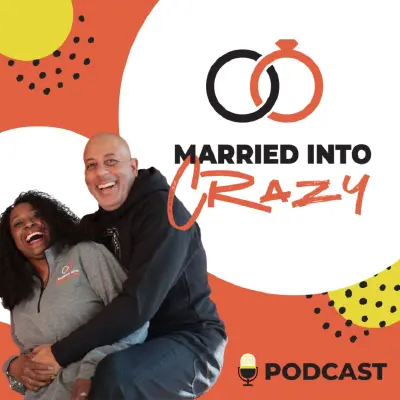Podcasts about Relationships
Episodes about Relationships

Jul 11, 2025
LU Moment: A look back at 2024-25 academic year with President Taylor | S8 Ep. 19
LU Moment ❭
This week on the LU Moment, we sit down with Lamar University President, Dr. Jaime Taylor, to discuss recent campus upgrades and academic and athletics highlights from the 2024-25 school year at LU. To check out the video podcast episode, visit: https://youtu.be/1b7Tg_GpA-Q?si=iQ4D5Q4YVk6imF8w.For updates on the latest news and events at Lamar University, visit lamar.edu/news.
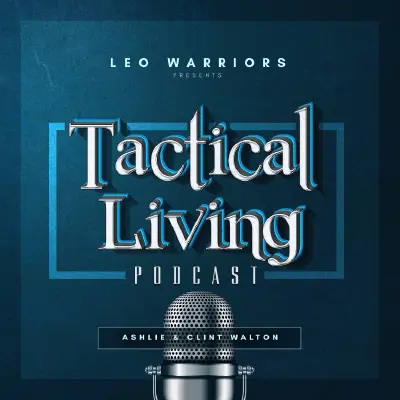
You wore the badge with pride. Maybe your father did too. But what happens when your child decides to take a different path? In this episode of the Tactical Living Podcast, Coach Ashlie Walton and Sergeant Clint Walton explore the emotional impact of legacy pressure—and how to process it when the next generation doesn’t follow in your professional footsteps. 🔎 Episode Overview: For many first responders, the job isn’t just a career—it’s part of the family identity. There’s pride in the tradition, honor in the lineage, and meaning in passing it down. But what if your son or daughter says, “That’s not for me”? This episode dives into the personal and cultural weight of breaking the badge legacy, how to recognize the subtle ways pressure shows up, and how to shift from expectation to unconditional support—while still honoring your own sacrifice and identity. 🧠 5 Signs You Might Be Struggling With Legacy Disappointment You Feel Hurt or Rejected by Their Career Choices Example: You quietly hoped they’d become a firefighter—but they chose art school. Impact: Internal conflict between pride and perceived dismissal of tradition. You Subtly Drop Hints or Bring It Up Often Example: “You’d be great in uniform,” becomes a regular comment. Impact: Creates emotional distance and pressure without realizing it. You Compare Their Life Path to Your Own Example: You struggle to see value in their profession because it’s not “life or death” work. Impact: Limits emotional connection and mutual respect. You Feel Like the Family Legacy Stops With You Example: You feel grief or regret that your badge story won’t be carried on. Impact: Can stir up feelings of purposelessness or personal failure. You Worry They Won’t Understand Your World Without Living It Example: You fear they won’t “get you” if they never serve. Impact: Undermines emotional intimacy and generational connection. 🛠️ 5 Ways to Let Go of Legacy Pressure and Embrace Their Path Honor Your Legacy Without Needing It Repeated Your sacrifice stands on its own. It doesn’t require replication to be meaningful. Be Curious, Not Controlling Ask your child why they chose their path. Learn from them like you’d want them to learn from you. Celebrate Their Bravery in Choosing Differently It takes courage to step away from family expectation. Recognize that strength. Create New Traditions That Aren’t Tied to the Job Start something that builds connection without relying on the uniform. Let Love Define Legacy, Not Occupation What your child becomes professionally is not a measure of how deeply they love or admire you. 🎯 Why This Episode Matters The badge may stop at your generation—but the values behind it—courage, service, discipline, and integrity—can live on in any path your child chooses. Legacy isn’t lost. It’s just evolving. 🎙️ Listen now to process the complex emotions behind legacy pressure and learn how to release expectations in exchange for deeper connection and pride in who your child truly is. 💥 Gear We Recommend for Our First Responder Community: 🛡️ Tactical storage made easy: STOPBOX – Buy One, Get One Free 🎯 Connect With Us: ✅ Join our Private Facebook Group for First Responders & Families 🎥 Subscribe on YouTube for behind-the-scenes content and live interviews 🌐 Visit LEOWarriors.com for coaching, resources, and more 💬 Listener Question: What’s one small act of service you can do today to honor someone who served? Let us know in the Facebook group or DM us on Instagram! Disclaimer: All viewpoints discussed in this episode are for entertainment purposes only and reflect our personal opinions based on our own experiences, background, and education. 🎙️ Want to be a guest on Tactical Living? Send a message to Ashlie Walton on PodMatch → Click here (Ad) Some product links in this episode may be affiliate links, which means we may earn a small commission if you make a purchase—at no extra cost to you. We only share products we genuinely believe in and trust. 📣 For PR, Speaking Requests, or Networking Opportunities: 📧 Email: ashliewalton555@gmail.com 📫 Mailing Address: P.O. Box 400115, Hesperia, CA 92340 🔗 Ashlie’s Facebook: facebook.com/police.fire.lawenforcement
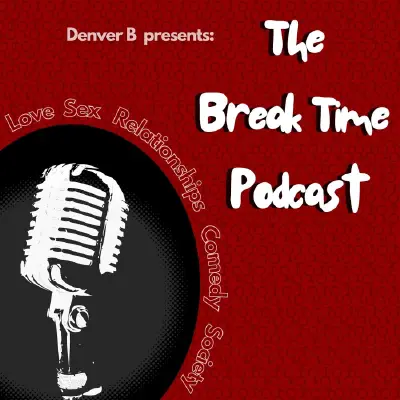
>Give your feedback here<It's a new episode, and Denver B decided to go back to dating after being in his feels during the past episode. There's love in the air still, but people seem to be losing it often. A coach speaks on men not celebrating themselves as a red flag (which needs debunking) before a lady's sad experience opens the door to speaking about spending to much time on preliminary stages... The Break Time Podcast Instagram:https://www.instagram.com/thebreaktime_podcast/ My Instagram:https://www.instagram.com/denver_bagaka/My Twitter:https://twitter.com/BagakatheD Bluesky: https://bsky.app/profile/thebreaktimepod.bsky.social

In this season, we're focusing on Chicago founders who are building right here in the city. I'm your host, Cecilia Benitez, and together we'll hear the stories behind the startups, explore the real challenges of building in Chicago, and uncover what drives these founders to keep going.Season 4 kicks off with a powerful conversation featuring Jill Miller, Founder and CEO of Lunum, a platform helping companies make smarter, people-centered decisions to boost performance.After witnessing firsthand the lack of diversity in America's industrial sectors, Jill made it her mission to build something different. From automating factory floors to launching a purpose-driven startup, her journey is one of grit, clarity, and vision.In this candid and inspiring episode, Jill opens up about:Navigating bias as a female founder in the Chicago startup ecosystemThe real value of authentic networkingThe disconnect between coaching and venture capitalThe emotional weight of entrepreneurshipWhy mental health and well-being should be part of every founder’s strategyConnect with Jill:Linkedin: https://www.linkedin.com/in/ryanlafler/ Lunum Website: https://lunum.io/Jill's Podcast: https://spondylitis.org/podcasts/ Connect with Chicago Techies Podcast:Website: https://chicagotechiespodcast.com LinkedIn: https://www.linkedin.com/company/chicago-techies-podcastInstagram: https://www.instagram.com/chicagotechies Connect with Ceci:LinkedIn: https://www.linkedin.com/in/cbenitez87/ Instagram: https://www.instagram.com/cbenitez_87

"Basta ang alam ko lang, seryoso na ‘ko sa iyo. At hindi na ‘ko kuntento sa pagpapansin at pagpapahaging lang. Hindi na ‘ko mapipigilan ng kahit ano’ng nakaraan mo. Alam kong hindi madali para sa iyo na magtiwala ulit, pero hayaan mong gawin ko ang lahat para matutunan mong buksan ulit ang puso mo."– THE CRYSTYN STORY#DearMORKonsensiya

Eric thought he and Kelly had a really good date so why did HE end up hanging up on her live on air???
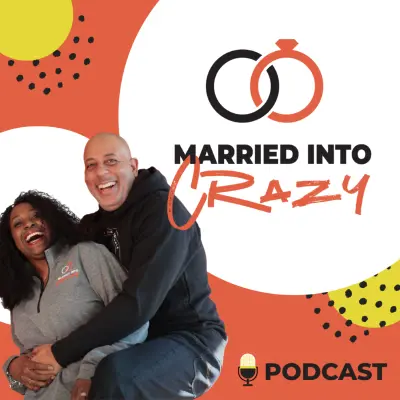
Jul 09, 2025
Shocking Truth About Dating Apps And Infidelity | Ep. 313
Married Into Crazy with Snooks and Lovey ❭
Discover the shocking truth about dating apps and infidelity! 😱 Are dating apps like Tinder, Ashley Madison, and BLK fueling a rise in cyber cheating and emotional affairs? In this eye-opening episode, we break down surprising stats, psychological motivations like validation and novelty, and the impact of online infidelity on relationships. With up to 42% of Tinder users reportedly in relationships, we ask: is it cheating if it's only online? We also dive into why emotional connections outside marriage can be just as damaging as physical ones, how culture and normalization of polyamory play a role, and why open communication is key to safeguarding your relationship. Tune in for tips on keeping your marriage strong, spicing up your connection, and avoiding the pitfalls of temptation in the digital age! Don't miss this thought-provoking discussion. Create PEACE in your marriage with https://marriedintocrazy.com #datingapps #selfimprovement #datingadvice #relationshipadvice #personaldevelopment CHAPTERS: 00:00 - Intro 01:09 - Snooks 01:32 - Top 3 Cheating Sites 04:04 - Registered Users Insights 05:49 - Reasons Married People Cheat 10:41 - Understanding Cyber Cheating 13:57 - Feelings of Remorse 16:22 - States with Highest Infidelity Rates 17:58 - Seasonal Trends in Cheating 23:55 - Impact of Sex on Relationships 25:33 - Cyberproofing Your Marriage Strategies 28:55 - Tune In Next Time

This week, we’re diving into the season of soft hustles and real growth. Erica opens up about shifting from burnout to balance, outgrowing people and places without guilt, and the glow-up habits that actually feel good - not just look good. Plus, she gives her unfiltered thoughts on Basketball Wives drama and first impressions of the new Big Brother lineup.✨ In this episode:Why the “Summer of the Soft Hustle” is a whole vibeHow to know when you’ve outgrown people or placesRealistic glow-up habits (and what we’re NOT doing anymore)Messy reality TV A mini reset ritual to calm your week🎧 Whether you’re evolving, resting, or sipping tea while watching chaos unfold on TV - this one’s for you.🔗 Tune in now and don’t forget to rate, review, and share with your Classy & Sassy crew!
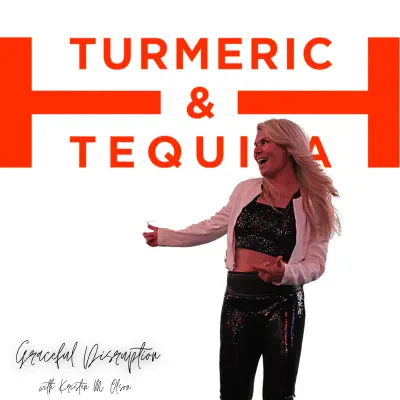
Jul 08, 2025
263. Christian Ray Flores: From Fame to Faith & Purpose-Driven Leadership
Turmeric and Tequila™ ❭
“Your identity isn’t what you do—it’s who you become in the process. Fame fades, but purpose endures.” – Christian Ray Flores In this powerful episode of Turmeric & Tequila™, host Kristen Olson is joined by Christian Ray Flores—global speaker, impact-driven entrepreneur, and former international music star. From topping the charts in post-Soviet Russia to co-founding award-winning companies and nonprofit movements, Christian’s story is anything but ordinary. They dive deep into identity, leadership, and legacy—unpacking how fame shaped Christian’s worldview and how faith continues to guide his mission in business, philanthropy, and media. Whether you’re building a personal brand or looking for purpose beyond success, this conversation is filled with practical wisdom and soulful reminders that your path matters. Time Stamps: 0:00 – Welcome + Christian Ray Flores' wild journey from fame to faith 4:10 – The unexpected rise to pop stardom in post-Soviet Russia 9:30 – Leaving the spotlight to pursue a deeper mission 13:45 – Entrepreneurship, spiritual alignment, and serving through business 18:25 – Overcoming ego, imposter syndrome, and pressure to perform 24:50 – Advice to creators and changemakers 29:30 – Why faith + impact are the ultimate success metrics 34:20 – Final reflections on leadership, legacy, and what’s next Christian Ray Flores Founder, Xponential Life Coaching Christian Ray Flores is an entrepreneur, evangelist, international recording artist, and philanthropist. From a childhood as a refugee to international pop stardom in post-Soviet Russia, he has forged an extraordinary path as a successful artist, speaker, and impact-driven leader. He co-founded Ascend Academy, Third Drive, and launched Xponential, a high-performance coaching program and community designed to help world changers thrive in life, leadership, and faith. Christian is a sought-after voice on creativity, business, purpose, and global transformation—combining real-world experience with spiritual conviction to inspire and equip the next generation of change-makers. https://www.xponential.life/littlebook https://www.xponential.life/ https://www.linkedin.com/in/christianrayflores/ https://x.com/ChristianRay https://www.facebook.com/christianrayflores1/ https://www.instagram.com/christianrayflores/ https://www.tiktok.com/@christianrayflores Connect with T&T: IG: @TurmericTequila Facebook: @TurmericAndTequila Website: www.TurmericAndTequila.com Host: Kristen Olson IG: @Madonnashero Tik Tok: @Madonnashero Website: www.KOAlliance.com WATCH HERE MORE LIKE THIS: https://youtu.be/ZCFQSpFoAgI?si=Erg8_2eH8uyEgYZF https://youtu.be/piCU9JboWuY?si=qLdhFKCGdBzuAeuI https://youtu.be/9Vs2JDzJJXk?si=dpjV31GDqTroUKWH

Remember when you couldn't keep your hands off each other? Now you're lucky if you make eye contact over the dinner dishes. You've gone from lovers to logistics managers, and frankly, you're both exhausted. So you do what everyone tells you to do: you talk about it. You go to therapy. You communicate your feelings. You hash out every grievance, every unmet need, every way he's disappointing you. And somehow... things get worse. Here's the brutal truth no one wants to admit: You're talking your marriage to death. While you're sitting in therapy sessions dissecting every problem, the real issue is dying a slow death. And it's not what your therapist thinks it is. In this episode, I'm exposing the biggest lie about fixing marriages—and revealing what actually brings back the spark you're desperately missing. And this isn't about communication skills or conflict resolution. It's about something much more primal that creates the bond you're craving. Warning: This approach goes against everything you've been told about "working on your relationship." But if you're tired of analyzing your marriage to death and ready to feel something again, this changes everything. 🔥 Ready to stop talking and start feeling? Discover what really works: https://hifam.com/desirelab 🔥 Want the complete marriage transformation? Check out: https://married-u.com/university

